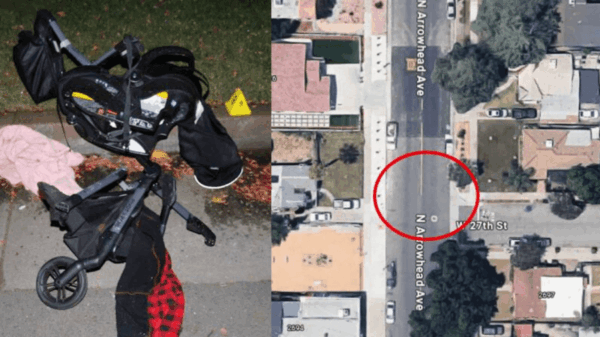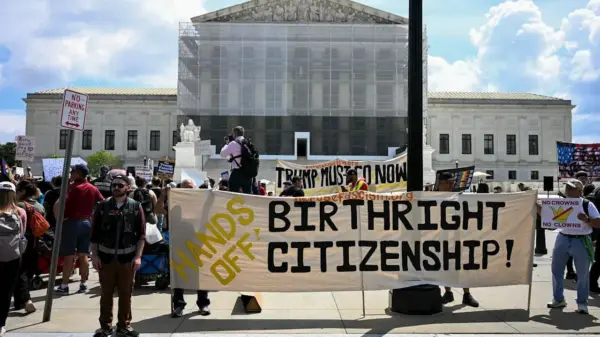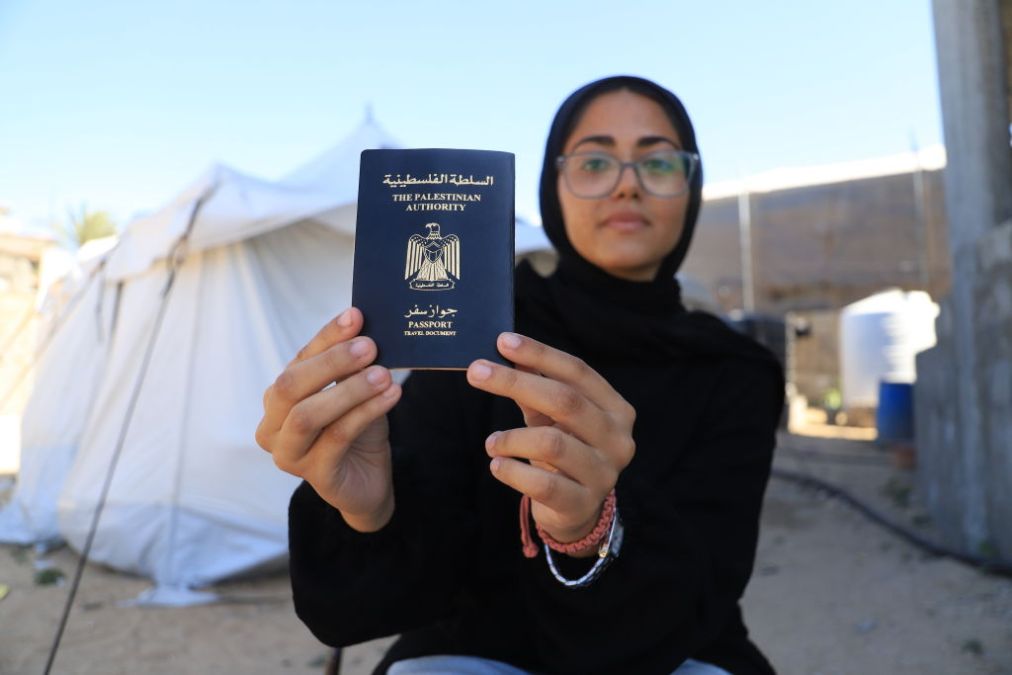UPDATE: In a dramatic move, the U.S. State Department has just announced a suspension of nearly all nonimmigrant visas for holders of Palestinian passports. This sweeping policy, confirmed by U.S. officials to the New York Times, escalates previous restrictions and affects individuals seeking medical treatment, education, family visits, and business travel.
The August 18 directive, distributed to all U.S. embassies and consulates, mandates that officials deny visas to “all otherwise eligible Palestinian Authority passport holders.” This broad suspension also extends to those applying for diplomatic or official visas, raising immediate concerns for countless Palestinians—especially as the humanitarian crisis in Gaza intensifies.
Officials indicate that the new policy is intended to comply with Section 221-G of the 1952 Immigration and Nationality Act, which requires additional review for applicants. However, it does not impact individuals with dual nationality applying through other passports.
This suspension arrives amidst escalating international condemnation of Israel’s military actions in Gaza, where over 60,000 Palestinians have reportedly been killed since the outbreak of conflict in October 2023. Critics claim this measure reflects a troubling trend of U.S. policy aligning with Israeli interests, particularly as humanitarian organizations describe the situation as a potential genocide.
The Palestinian Authority, which has issued passports since 1995 with Israeli approval, now faces unprecedented challenges as the U.S. revokes and denies visas to its officials. This latest move follows prior restrictions placed on Palestinian visitors from Gaza seeking humanitarian aid and medical services.
Amidst the ongoing violence, several U.S. allies, including Canada, France, and the U.K., have pledged to recognize a Palestinian state at the upcoming U.N. General Assembly, further complicating the diplomatic landscape. These developments not only impact international relations but also highlight the plight of Palestinians seeking refuge and assistance.
A State Department spokesperson emphasized that every visa decision is a national security matter, asserting that the department is carefully vetting Palestinian passport holders. However, questions arise regarding the true motivations behind this policy. Critics, including Kerry Doyle, a former lead attorney for U.S. Immigration and Customs Enforcement, have raised concerns about the reliance on national security as a pretext for politically driven decisions.
As pressure mounts and the humanitarian crisis deepens, many are left wondering about the long-term implications of these visa restrictions. The situation remains fluid, and further updates are expected as global reactions unfold.
For now, the suspension of visas for Palestinian passport holders serves as a stark reminder of the ongoing complexities and challenges faced by those in conflict zones. The world watches closely as the U.S. navigates its role in a rapidly changing geopolitical landscape.




































































